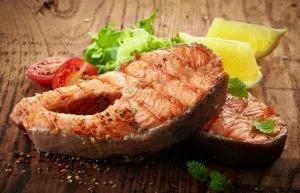Niacin is one of eight B vitamins and is important for helping to convert carbohydrates into glucose, metabolizing fats and proteins, as well as ensuring the nervous system functions properly.
It also helps the body produce sex and stress-related hormones as well as to aid circulation and optimize cholesterol levels.
Niacin plays a part in over 50 metabolic processes within the body, which means a deficiency in this vitamin can have a serious effect on your health. A well-balanced diet is the best way to ensure you get the right amount of this nutrient, although it is rare for anyone in the developed word to be niacin deficient. In the U.S. alcoholism is the most common cause.
The recommended daily dosage is 16 milligrams for men and 14 milligrams for women. Higher doses may be used to control specific diseases, but they must be prescribed by a physician who will likely ask you to increase the amount slowly.
Niacin has been used to treat high cholesterol, heart disease, diabetes, osteoarthritis, and some studies have shown that higher levels of niacin may lower the risk of Alzheimer’s disease. Getting too much niacin can be toxic, however, so it’s important not to self-treat.
Some of the more mild signs of niacin deficiency include:
- Canker sores
- Abdominal upset such as vomiting, nausea, diarrhea, and indigestion
- Fatigue
- Depression
A severe niacin deficiency is known as pellagra and can cause:
- Skin rash or lesions that appear on both sides of the body, worsening when exposed to sunlight
- Swollen, painful mouth and tongue
- Depression, fatigue and apathy
- Headache
- Memory loss
- Vomiting and diarrhea
- Disorientation
If not treated, a severe niacin deficiency can even cause death.
If you notice these symptoms, you should contact your healthcare provider right away, although a deficiency can generally be treated effectively through a nutritionally balanced diet and niacin supplements.

As with just about any condition, ensuring that you eat a healthy diet filled with whole foods from the earth while avoiding processed, “man-made” foods, is usually the best way to prevent it.
-The Alternative Daily
Sources:
http://www.whfoods.com/genpage.php?tname=nutrient&dbid=83
http://www.webmd.com/diet/niacin-deficiency-symptoms-and-treatments
https://umm.edu/health/medical/altmed/supplement/vitamin-b3-niacin
